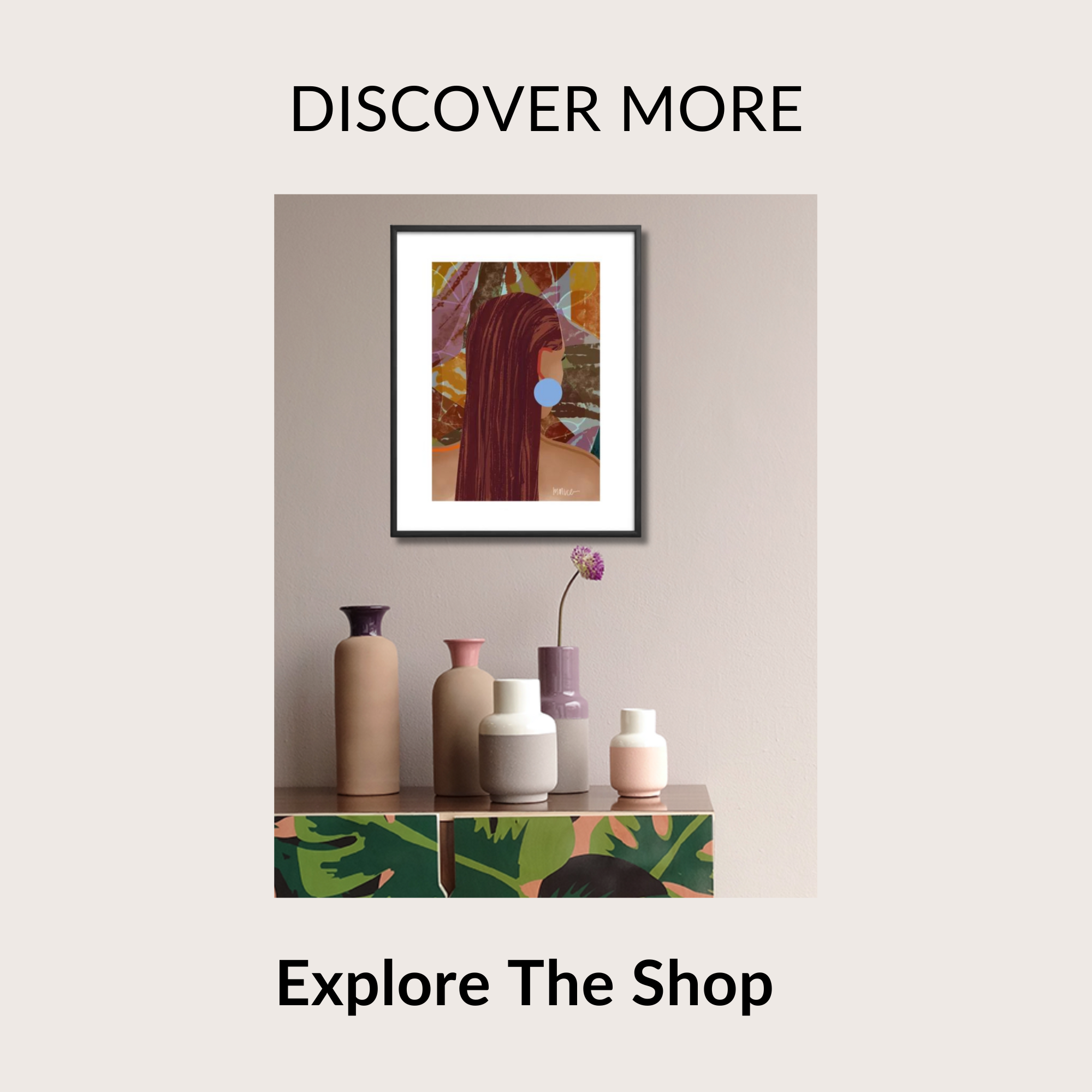Her Food Is A Revolution: Tiffany-Anne Parkes of Pienanny
Photographs by Theodore Samuels and courtesy of Pienanny. Originally published in AphroChic magazine Issue 9, Summer 2022.
“You have a social responsibility as an artist,” says Tiffany-Anne Parkes, the founder of Pienanny. It’s a responsibility that she does not take lightly. Speaking with the culinary artist over Zoom, it’s clear that Parkes is always thinking deeply and intentionally about the work she’s doing, even while on vacation. Enjoying the Jamaica sun while visiting with family, her hair pulled back in beach-ready blonde cornrows, she’s equal parts reflective and instructive, talking about pies as if she were still teaching history in front of a classroom - a full-time profession that she recently left in 2022. “For me,” she continues, “art is not just about being pretty. It’s not about something just being attractive…” After a brief pause she asks, “Why aren’t we taking it a step further and thinking a bit more deeply about culinary artistry and thinking about how we can use that as a way to say something meaningful?”
Part of the answer may be that, for most of us, “culinary artistry” isn’t something we’ve ever conceived of - at least not the way that Parkes does. While there are a number of world-class chefs leading conversations on how food connects to deeper questions of class, equity and social justice, there are few visual artists using food as their medium. Yet for Parkes, the connection is clear, resulting in a unique blend of food and art, that blurs the line between fine artist and chef to the point of near irrelevance. The artist/chef uses her hands to mold dough into enticing pies that hold urgent historic narratives, presenting her audience with social commentary we can eat. A combination made even more remarkable by the fact that as both an artist and a chef, she’s entirely self-taught.
“I don't have any ‘chefs’ in my family,” Tiffany explains. “Most of what I learned about cooking I learned in the kitchen, just watching my mother or watching my aunts, and cousins. I would say it was a really organic process.” Her path as a visual artist has been equally organic, and like cooking, she’s been at it for as long as she can remember. “I started drawing at the age of five. And so visual art has always been an outlet for me,” she recalls. Proud of her Jamaican heritage, Parkes prefers flavors and fillings traditional to the island. But for those of us not fortunate enough to have tasted her work, there’s more than enough joy to be found in what we see.
On her Instagram, which is as much a gallery space as it is a menu and visual diary, there’s the deeply hued pie in dark raspberry that was inspired by Elizabeth Catlett’s “There Is A Woman In Every Color,” a feminine face etched beautifully into the dark purple crust. Other works depict an image of Queen Nanny, leader of an 18th century community of Jamaican Maroons on a tart drizzled with caramel sauce and a gingersnap crust that’s home to a hibiscus custard shaped into the silhouette of Saartjie Baartman, the Khoikhoi South African woman who was illegally enslaved and displayed across Europe and whose body was later deconstructed for study. Looking much like a piece at a Kara Walker exhibit, and with similar impact, serving up important histories and uncomfortable truths, the Baartman piece puts viewers in exactly the type of double-bind that characterizes so much of the Pienanny’s work: while some of us may look away from the history, no one’s going to turn away from the pie. And like any good teacher, Parkes uses that allure to get our attention and keep it until the lesson is done.
Tiffany is now working on launching her new project, A Seat Above The Table. Her new non-profit will host what she describes as a highly curated multimedia, multidisciplinary dining experience. “As Black women, Black people, we're always talking to each other about issues, we're always talking to each other about all kinds of things. But we're never having these conversations with the people that we need to have these conversations with because they're too uncomfortable. But we have to start. That has to happen if you really want there to be some sort of progress or change.” Whether through art or outreach, the Pienanny is a woman with a story to tell - a story that’s for us, by us, and that we all need to hear if we’re to reach the happy ending at it’s conclusion. “It's meant to be culturally inclusive and exclusive,” she smiles. “It's like a joke. If you get it, you get it. If you don't, then that's telling too.”











